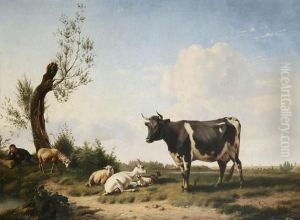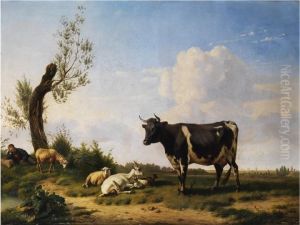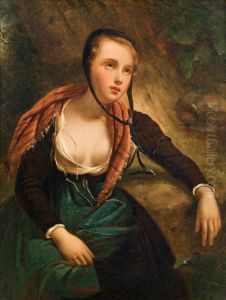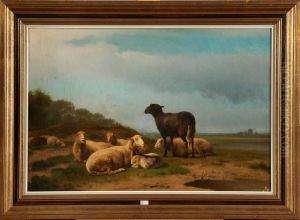Pierre Emmanuel I Dielman Paintings
Pierre Emmanuel Dielman, born in 1823 in Bordeaux, France, and passing in 1906, was a French artist who made significant contributions to the art world during the 19th century. Dielman, though not as widely recognized today as some of his contemporaries, was an accomplished painter and illustrator, whose works encapsulated the romantic and realistic artistic movements of his time. His early life was marked by his move to Paris, where he immersed himself in the vibrant artistic community, studying under notable masters and honing his craft at esteemed institutions such as the École des Beaux-Arts.
Dielman's artistic oeuvre is notable for its diversity, encompassing genre paintings, historical scenes, and portraits. He had a particular talent for capturing the nuances of human expressions and the subtleties of social interactions, making his genre paintings especially compelling. His works often reflect the societal norms and values of his time, serving as visual documents of 19th-century French culture. Dielman exhibited his works at the Paris Salon, the premier art exhibition in France, where he gained recognition and accolades for his artistic achievements.
Beyond his contributions to painting, Dielman was also involved in the world of illustration, contributing to various publications of his time. This aspect of his work highlights his versatility and adaptability as an artist, able to convey stories and emotions not only through traditional canvas but also in the printed form. His illustrations are characterized by a keen attention to detail and a distinctive style that made them stand out in the crowded field of 19th-century print media.
Despite his achievements, Pierre Emmanuel Dielman has not maintained a high profile in the annals of art history. His legacy, while perhaps overshadowed by the luminaries of his era, remains important for those studying the nuances of 19th-century French art. His works continue to be appreciated by collectors and historians for their beauty, technical skill, and as reflections of the societal dynamics of his time. Dielman's life and career offer valuable insights into the world of 19th-century French art, embodying the spirit of an era that valued the aesthetic, emotional, and moral dimensions of artistic expression.



